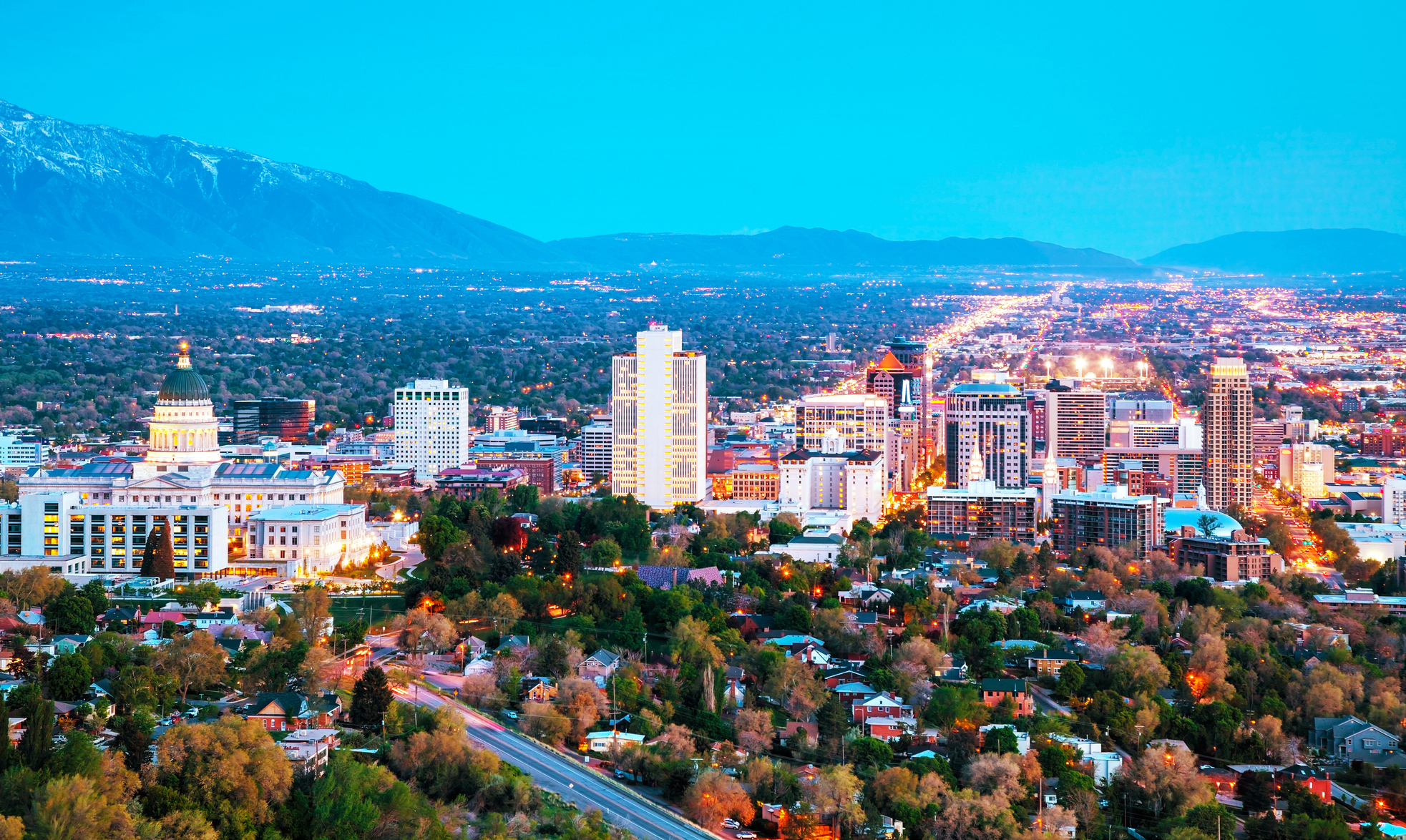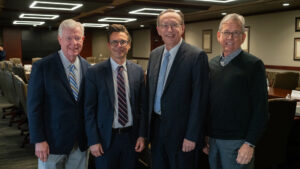
SALT LAKE CITY (BP) — Pastor Bryan Catherman’s neighbors were crying Wednesday (March 18), afraid the 5.7 magnitude earthquake that struck Salt Lake City, Utah, a few hours earlier signaled the end of the world.
 The moderate earthquake with its aftershocks killed no one and caused little structural damage, but it further shook the resolve of many people already shaken by the coronavirus (COVID-19) pandemic that has killed more than 9,300 globally.
The moderate earthquake with its aftershocks killed no one and caused little structural damage, but it further shook the resolve of many people already shaken by the coronavirus (COVID-19) pandemic that has killed more than 9,300 globally.
“Some of my neighbors — not all of my neighbors — but some of my neighbors were very afraid,” said Catherman, who pastors Redeeming Life Church in the eclectic Rose Park community near the quake’s epicenter. “I was dealing with some neighbors, adult neighbors, that were just in tears, crying, ‘This is the end. There’s going to be another one; we’re not going to make it.’
“It gave me lots of opportunity to speak into hope found in Christ.”
With Redeeming Life Church already closed in a wave of national closures aimed at controlling COVID-19, Catherman took to social media to spread Gospel hope.
In the state dominated by members of the Church of Jesus Christ of Latter-day Saints (LDS), Catherman’s Rose Park community of about 35,000 people is considered an anomaly. Catherman counts only about a quarter of the residents as practicing Mormons. Another quarter are non-practicing Mormons, and about 48 percent are a mix of Buddhist, agnostic and other belief systems.
“I don’t have Christians in my community, very, very few,” he said.
Redeeming Life has about 20 members and averages nearly 60 in Sunday worship, according to the Southern Baptist Convention’s Annual Church Profile.
If the community were majority Mormon, an expert told BP, residents would receive the messages of hope offered by LDS leaders since the quake and during the pandemic.
“I think it’s going to make them feel more justified in what they believe,” said Travis Kerns, an associate professor of apologetics and world religions at Southwestern Baptist Theological Seminary.
Mormons participate in LDS churches in groups of 300-500 people called wards, which are led by bishops who confirm the religion’s promotion of self-sufficiency.
Utahns can expect days of aftershocks from the quake that struck about 7 a.m. Wednesday in Salt Lake County without causing serious injuries, the Salt Lake Tribune reported. The quake damaged a few downtown buildings, caused about 50,000 power outages and shifted about 50 homes from their foundations in a mobile home park. For most, the quake knocked artwork from walls and items from shelves. About 70 flights at Salt Lake International Airport were diverted or postponed.
“If it hadn’t happened in light of the coronavirus,” Catherman said, “I think it would have been less scary for people. Having their fears elevated just put this over the top.”
About 80 percent of the state’s population live along the Wasatch Fault Zone and have been told to expect a major earthquake of at least 6.75 magnitude within the next 50 years. The state has been preparing for the event, according to the Salt Lake Tribune.
“When this earthquake actually hit, I think it had already tapped into 40 years of fear that had been growing, on top of coronavirus fear. And I think it was just too much for a lot of people,” Catherman said. “(The Mormon) religion is a works-driven religion.”
The earthquake provided an opportunity for Catherman to share the truth of Christianity.
“I’m able to say, ‘I don’t have to worry about if I’ve measured up. I know where I’m going. To live is Christ; to die is gain,'” he said, paraphrasing Philippians 1:21. “Just to be able to talk about [the Gospel] with people, and I think they’re so much more open to it because now, the thing that they’ve been doing isn’t giving them comfort.”
Catherman said most of the members of Redeeming Life Church are handling the crises well, although he believes millennials are more stressed because they haven’t experienced many crises as adults.
“I’m doing my dead-level best to shepherd the people that we have, day by day, taking it one day at a time, proclaiming the Gospel, plant and cast as many seeds as I can,” he said. “I just get up in the morning and set myself to that goal.”
The Utah Department of Health has reported 78 COVID-19 cases and no deaths from the virus. Nationwide, COVID-19 has killed at least 150 people and sickened nearly 9,500, Johns Hopkins University tallied as of BP press time Thursday.
















